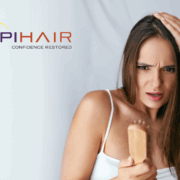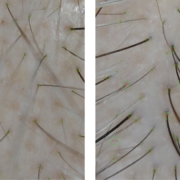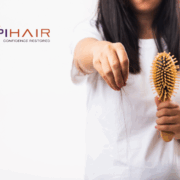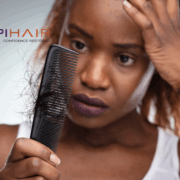Hormonal Hair Loss Solutions For Women in Nolensville, TN
Combat hair loss: Restore confidence with our hormonal hair solutions.
Hair loss is a common concern for many women, and the impact it has on self-esteem and confidence can be significant. While there are various factors that can contribute to hair loss, hormonal imbalances are often a leading cause, particularly for women. Understanding the role of hormones in hair health and exploring effective solutions is crucial for restoring not just the appearance, but also the emotional well-being of affected individuals.
Hormonal Imbalances and Hair Loss
When it comes to female hair loss, hormonal imbalances can play a key role. Fluctuations in hormone levels, particularly estrogen and progesterone, can disrupt the hair growth cycle, leading to thinning hair and noticeable shedding. Other hormonal culprits, such as thyroid imbalances and conditions like polycystic ovary syndrome (PCOS), can also contribute to hair loss in women. Understanding these hormonal influences is crucial to developing effective solutions.
Female Pattern Hair Loss
Female pattern hair loss, also known as androgenetic alopecia, is the most common cause of hair loss in women. It is characterized by a gradual thinning of the hair, typically starting at the crown and widening through the parting. This type of hair loss is often linked to genetic predisposition and the influence of androgens, such as dihydrotestosterone (DHT). DHT can shrink hair follicles, leading to shorter growth cycles and finer, thinner hairs. Recognizing and realizing this pattern of hair loss is essential for addressing it effectively.
Effective Hormonal Hair Loss Solutions
Thankfully, there are several hormonal hair loss solutions that have shown promise in addressing the root cause of the issue and promoting regrowth. These solutions may include:
1. Hormone Replacement Therapy: For women experiencing hair loss due to menopausal hormonal imbalances, hormone replacement therapy (HRT) can help restore estrogen and progesterone levels, potentially improving hair health and growth.
2. Nutritional Supplements: Certain vitamins and minerals, such as biotin, iron, and zinc, play a crucial role in maintaining healthy hair growth. Supplementing with these nutrients can support overall hair health, particularly for individuals with hormonal imbalances.
3. Topical Treatments: Prescription medications, like minoxidil, can be applied directly to the scalp to stimulate hair follicles and promote thicker, healthier hair growth. Additionally, topical anti-androgens may help block the effects of DHT on the hair follicles.
4. Lifestyle Modifications: Stress management techniques, regular exercise, and a balanced diet can all contribute to hormonal balance and overall well-being, which can have a positive impact on hair health.
Consultation and Customized Treatment
Seeking the guidance of a healthcare professional specializing in hormonal imbalances and hair health is essential for developing a personalized treatment plan. Combining medical expertise with a comprehensive realizing of an individual’s hormonal profile and overall health can lead to tailored solutions that address both the underlying hormonal imbalances and the specific patterns of hair loss.
Last ideas
Recognizing the intricate relationship between hormonal imbalances and hair loss in women is the first step toward finding effective solutions. With advances in medical and holistic approaches, women experiencing hormonal hair loss can seek targeted treatments that address the root cause and restore their confidence and sense of well-being.













